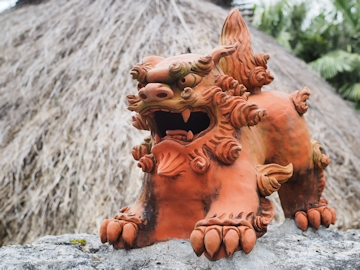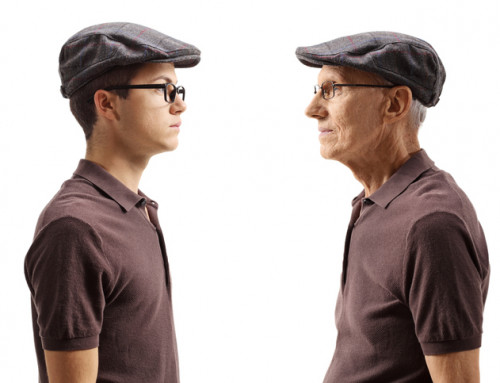I LOVE healthy food, what more can I say? It’s a passion of mine that has grown immensely over the last ten years, a passion from which I have improved my own health, the health of my family and have formed a successful career. I now run a private nutrition clinic, write a nutrition column in a magazine and have recently launched my own nutrition retreat in Berkshire. It hasn’t always been that way though, it’s been a long journey. Somewhat ironically, as a child, I loved everything and anything sweet, as I don’t doubt most children do (and undoubtedly some adults). I loved rice pudding, apple crumble and sticky toffee pudding. My intention was never to have a career within the field of nutrition. I’d always envisaged taking a more creative route, but a situation over ten years ago changed that vision. My mother was diagnosed with Diverticular Disease, a disease characterised by pockets (diverticula) that form in the lining of the colon, causing severe inflammation.
I recall the weeks following my mother’s diagnosis, seeing her doubled up with severe abdominal pain, pre-empting a worse-case scenario. We always fear the worst, don’t we? My mother’s symptoms did not improve under medical guidance and they began to impair the life of an individual who was otherwise very sociable and outgoing. At that point, I was already reading a lot of literature about nutrition and its influences on disease, but my mother’s diagnosis prompted me to embark on a three-year study programme in naturopathic nutrition and to re-think our relationship with food. I have since become fascinated by nutrition for pathology and how nutrition influences demographic variation across the globe. It comes as no surprise, therefore, that Okinawa, a blue zone region of Japan, has been of great interest to me. With one of the highest proportions of centenarians in the world and some of the lowest rates of chronic diseases[1], I’m intrigued by their dietary habits.
The Okinawan diet comprises ‘three main characteristics of Okinawan longevity food’ [1]. The first is ‘shingi gusui’ [1], or ‘infused medicine’ [1], denoting to the use of foods as herbal medicine. The second characteristic, it seems, fulfils the first by combining certain foods to protect against illness. ‘Chimu and Shinji’ [1], are combined, effectively a broth of pig’s liver and locally sourced vegetables, such as garlic and yellow island carrots. Bitter vegetables are also combined with local freshwater fish, ‘such as kuiyu (Carp) and taiyu (bream)’ [1]. The third and final characteristic of Okinawan longevity food is the use of ‘foodstuffs found very close to hand’ [1] and the principle of incorporating these locally sourced foods into the daily diet. ‘Ichoubu’ [1] (fennel) is consumed to assist with digestion and to minimise the stench of fish soup and ‘choumigusa’ [1], a long-life grass, is consumed with raw fish to help prevent fever and high blood pressure.
The Okinawan attitude towards food is one of upmost respect, a mindset that dates back to ancient Chinese texts, in which ‘the doctor who supervised dietary therapies was more respected than the physician or surgeon’ [1]. Medicinal treatment and the daily diet are given the same value, an attitude that unfortunately did not come across in the UK when my mother was diagnosed with Diverticular Disease. How would our own dietary habits change if we were to share this Okinawan outlook and how would those changes impact our state of health?
In a TED talk by Dan Buettner, an international explorer and writer for National Geographic, he shares his findings on Okinawan longevity food. Buettner reinforces the significance of the Okinawan diet, describing ‘a plant-based diet full of vegetables with lots of colours in them’ [2]. With the ‘longest disability-free life expectancy in the world’ [2], according to Buettner, Okinawans have ‘one fifth of the rate of colon and breast cancer and one sixth of the rate of cardiovascular disease’. [2] With these statistics in mind, I’d like to share with you an Okinawan Centenarian Study of hormone-dependent cancer risks across the globe. I’m astonished at how the rates of cancer differ so dramatically across the globe. As you can see from the chart below [3], in comparison to some countries, Okinawans have ‘80% less breast cancer and prostate cancer, and less than half the ovarian and colon cancers’. [3]
|
Hormone-Dependent Cancer Risk
Yearly Cancer Deaths (per 100,000 people)
|
|||||||
|---|---|---|---|---|---|---|---|
| Location | Life Expectancy | Breast | Ovarian | Prostate | Colon | ||
| Okinawa | 81.2 | 6 | 3 | 4 | 8 | ||
| Japan | 79.9 | 11 | 3 | 8 | 16 | ||
| Hong Kong | 79.1 | 11 | 3 | 4 | 11 | ||
| Sweden | 79.0 | 34 | 10 | 52 | 19 | ||
| Italy | 78.3 | 37 | 4 | 23 | 17 | ||
| Greece | 78.1 | 29 | 3 | 20 | 13 | ||
| USA | 76.8 | 33 | 7 | 28 | 19 | ||
More significantly than what they eat, according to Buettners observations, is the way they eat their food’ [2]. ‘They eat off smaller plates’ [2], they always eat at the table and, most importantly, ‘they stop eating when they are just 80% full’ [2], a concept referred to by Okinawans as ‘hara hachi-bu’. [4] Within the western world, it seems that little attention is given to the process of eating. As creatures of habit and lovers of convenience, we often tear through food giving little attention to what we are eating or to how full we are. I was once quite guilty of doing this myself. Food is often considered as mere fuel. One could say we eat more mindlessly than mindfully.
With my knowledge of nutrition, I believe that some of the most significant factors that protect Okinawans from certain diseases are, ‘large amounts of various types of seaweed’, ‘leafy vegetables and herbs’ [1], fresh fish, small quantities of lean meats, as well as the anti-oxidant-rich sweet potato that ‘was brought to Okinawa after a tributary mission to China in 1605’ [4], saving ‘many Okinawans from malnutrition’ [4]. I suspect an organic diet, based on locally grown and sourced produce, is also key. As of 2017, the convenience food market within the UK is thriving and is set to continue its growth over the next five years. [5] Coupled with rising cancer rates [6], I imagine we could take inspiration from the Okinawan diet. Sadly, due to strong influences from westernised food cultures, ‘a rapid post-war shift in dietary habits’ [7] was observed in Okinawan culture and young Okinawans have since adopted the ‘sugar and salt-rich American fast food diet’. [7] One can only hope that traditions resume.
Okinawan cuisine has developed under the influence of multiple factors, with geographical and historical factors coming into play. Most significantly for me, however, is the Okinawan attitude towards food and its impact on health. With that in mind, how do our revised dietary habits compare to that of the Okinawans and how have those changes influenced mine and my mother’s health? Well, geographically speaking, the types of foods we now eat may well be quite different in comparison, but I imagine our principles are similar to those of Okinawan tradition. We no longer rely on our local supermarket for food produce. We now source the majority of our foods from local organic farms and have become a lot more engaged in the farm to fork process and what it really means to eat both seasonally and organically. Consequently, we now only eat grass-fed meat from animals that have lived a life on organic pastures, meat that is both lean and rich in omega-3 fatty acids. We place a lot more emphasis on plant-based foods and try to consume at least six portions of organic vegetables every day, to include two leafy greens. Like the Okinawans, we make a conscious effort to have a varied diet with lots of different colours of fruits and vegetables, to really maximise the nutritional content of our meals. Eating seasonally really encourages us to do this and it’s such an exciting way of exploring new ingredients and flavours. Whoever thought that rainbow chard could be so thrilling? Personally speaking, eating in this way makes me feel so much more alive.
Up until changing my diet all those years ago, I often felt fatigued, lacking in energy. I now feel a lot more energised, less lethargic and my ability to concentrate has greatly improved. Having experienced terrible anxiety in the past, a healthy diet now enables my body to better manage stress, something that enables me to be a better partner, as well as a better companion for myself. I still suffer with very mild bouts of anxiety from time to time, but nothing in comparison to how anxious I used to be. My mood is now a lot more stable, due to a more balanced hormone profile. Since changing her diet, my mother rarely experiences any of her initial symptoms and no longer suffers with abdominal pain or impromptu diarrhoea. Her confidence to go out has very much returned and she is able to enjoy an active social life without worrying where the nearest toilet is, something that I know concerns so many individuals with gut disorders.
Before changing my diet and rethinking my relationship with food, I always thought I was well, but it’s not until you feel so well that you realise how unwell you once were. That concept in itself is one of the reasons why I feel so passionate about good quality food and why I get so frustrated by how the western diet has evolved. Arguably the most significant likeness between my diet and the Okinawans is the fact that my own passion for healthy food is now embedded in Hippocrates concept of ‘let food be thy medicine and medicine be thy food’, a notion that very much mirrors Okinawan beliefs. Above making the choice to simply be healthier, for me, it’s the passion I now have for real food and its ability to influence my health and the health of those around me.[/fusion_builder_column][/fusion_builder_row][/fusion_builder_container]







Leave A Comment